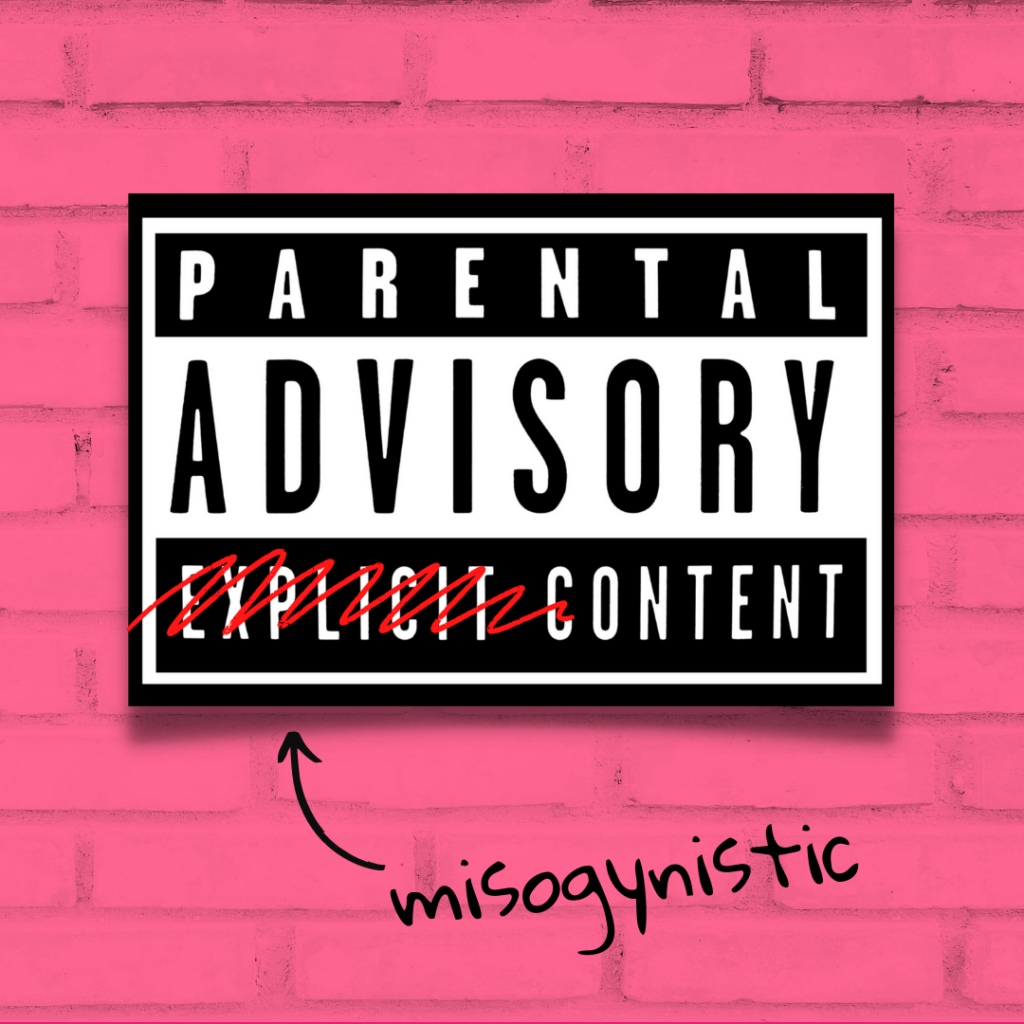”You can’t be a feminist and listen to music like this.” I’ve lost count of the number of times I’ve been told I am a hypocrite and not a real feminist for listening to hip hop, rap, and reggaeton. Yet misogyny in music is not tied exclusively to these three genres or specific cultures. Having lived in six countries and three continents over the past ten years, I’ve come to find that all kinds of music in these places contain misogynistic imagery that perpetuates the male gaze, violent domination, and the predatory nature of patriarchy. Country stars sing about underage Southern girls, pop stars about ‘that yummy-yum,’ and metal singers about sacrificing virgins. The problem represents a much deeper issue than just lyrics themselves; it reflects how far patriarchy reaches into modern culture.
Misogyny is everywhere in music; the entire industry is one big boys’ club. Lyrics boast about sexualising, objectifying, and degrading women. Whilst women feature in male music videos as sexual objects, female artists’ appearance and sexual expressions are publicly scrutinised. Women working behind the scenes in the industry have to act like ‘one of the guys’ to fit into the male-dominated workplace, and swallow harassment from their co-workers to keep their jobs or to advance their careers. Reported abusers barely see repercussions, especially those who bring revenue to the companies. Money will always trump human value and dignity, revealing the ultimate threat of capitalism to women – in music and beyond.
And herein lies the problem. How do we balance our struggle for gender equality––by not supporting misogynistic artists and thereby not endorsing the patriarchal industry that allows the reproduction of this detrimental cycle––with the simple desire to listen to a catchy song? Where do we draw the line between artists and artistic expression? How do we prevent the reproduction of misogynistic discourse through music that glorifies issues like rape culture?
People who mockingly question my music taste are often men who don’t identify as feminists. Am I meant to seek permission to listen to the type of music I want to? Is the male stance the standard in this, too?
The answer is yes. Society allows men to condone misogynistic lyrics and not bat an eye when their mates hype it up, but when women or feminists listen to the same songs, heads are shaken in unison. The irony is overwhelming. Women are evaluated either through her victimhood, or by what she can offer to the male gaze and whether she poses a threat to its perpetuation.
Saying feminists cannot consume music with lyrics that go against our morals is like telling us to not listen to music at all. This only illuminates the extent to which there is a much deeper issue rooted in the entire system. We are immersed in cultures that perpetuate and embed patriarchal values, but we also do not want to be excluded from being a part of something bigger and connecting with others through music – its melody, rhythm, beat, and for some, lyrics.
If we can separate author from narrator, then we must also be able to separate the listener from morals, or the music from the lyrics. I can choose to listen to the music I want to listen to, and I choose when I’ve had enough. I don’t need your permission for it. And I certainly do not need to be called out for it because of my gender. Why do you jam to a misogynistic song and then ask me if only I find the song problematic? Shouldn’t you care, too?
Although several rappers have argued lyrics are ‘a work of poetry’ to the US Supreme Court in 2019, this argument is often reversed when feminists listen to the same lyrics. Can I even listen to music anymore without having to justify myself? The irony is that when female artists take back control and adopt this narrative in music, society deems it inappropriate. Yet, of course, when male artists do so, it’s perfectly acceptable. We must begin to address the issue of female agency within the industry if we are to deconstruct the misogyny that lingers within it.
It would be lovely if music didn’t include these lyrics, nor the predatory culture to exist, but the reality is, it does. Banning entire genres of music isn’t going to change it, because the problem is deep rooted in our everyday lives. To fix misogyny in music, we must first fix the culture that allows it to occur in the first place. We must change the underlying misogynistic attitudes that find their ways into pop culture, and expose and educate the individuals who perpetuate sexism and misogyny in real life.
This isn’t a call for sitting back and leaving societal misogyny brew on the back burner. This is a call for letting women listen to the music they choose and finding ways of fighting misogyny within and outside of music, in our everyday lives. We must move forward from the endless debate and let women do what they want. What matters is that we have seen changes. More awareness is raised. People within the industry are increasingly coming forward. This is what we need. Change does not happen overnight, but it has begun. To fix the patriarchal and misogynistic music business, we have to begin with the deeper constructions gender inequality within wider society. And for that, we need everyone.
